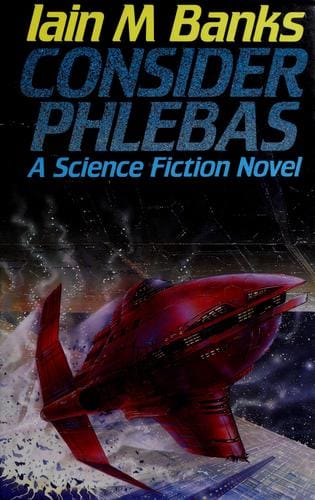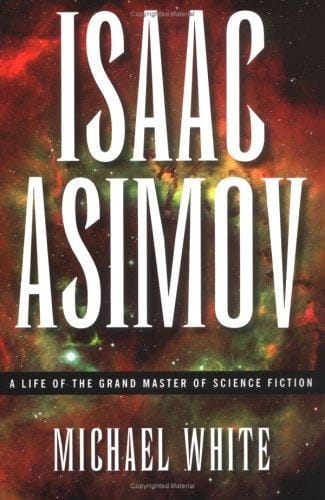Consider Phlebas: A Deep Dive into Iain M. Banks’ Culture Debut
Explore the plot, themes, and legacy of Iain M. Banks’s debut Culture novel, Consider Phlebas, in this concise, spoiler-light 800-word review.

Introduction
For many science fiction fans, the late Scottish author Iain M. Banks represents the pinnacle of space opera ambition. It all started in 1987 with Consider Phlebas, the first published entry in the expansive Culture series. The novel flung readers into a post-scarcity galactic civilization locked in a brutal ideological war, combining break-neck adventure with head-spinning philosophical breadth. More than three decades later, the book still thrills new audiences and shapes the wider genre. This article offers an 800-word, spoiler-light dive into what makes Consider Phlebas essential reading.
Plot Overview
The story follows Bora Horza Gobuchul, a shape-shifting mercenary aligned with the Idiran Empire, a fiercely religious species engaged in total war against the secular, post-human Culture. After barely escaping execution, Horza is hired to retrieve a stranded Culture Mind—an artificial super-intelligence—hidden deep inside a forbidden, dying world called Schar’s World. His journey takes him through prison breaks, orbital train heists, gambling dens, and the belly of a colossal, anarchic ship named the Clear Air Turbulence. Each set piece pushes Horza closer to the elusive Mind, while forcing him to confront the moral grey zones of the conflict he claims to understand.
Themes and Ideas
While the book can be read as a straightforward adventure, its deeper muscle comes from big thematic questions. Banks explores the nature of identity through Horza’s ability to change his appearance yet cling to rigid beliefs. The clash between the evangelical Idirans and the hedonistic Culture dramatizes an age-old debate about faith versus rationalism, purpose versus pleasure. At the same time, the novel interrogates the ethics of intervention: should a powerful utopia meddle in less developed societies, even for noble ends? Banks refuses easy answers, preferring messy moral complexity that invites readers to argue long after the final page.
World-Building and the Culture
Consider Phlebas serves as the reader’s first glimpse of the Culture, a post-scarcity society run by hyper-intelligent Minds that grant its citizens near godlike freedoms. Starships grow like living coral, drones crack jokes, and humans can alter their body chemistry with a thought. Yet, because Horza is an outsider, we mostly encounter the Culture in negative space—through rumors, propaganda, or captured prisoners. This clever narrative angle turns the utopia into a tantalizing mystery while exposing its blind spots. Banks balances this with visceral descriptions of planets, orbital habitats, and ship interiors that feel both wild and plausibly engineered, proof of his engineering background and imaginative rigor.
Character Analysis
Horza stands among the most compelling anti-heroes in modern science fiction. Charismatic and resourceful, he is also stubbornly ideological, willing to sacrifice innocents for a cause that may not deserve his loyalty. His internal contradictions mirror those of the wider conflict, making him the perfect lens for Banks’s moral interrogation. Secondary characters shine as well: the swashbuckling pirate Kraiklyn, the enigmatic Culture agent Perosteck Balveda, and a ragtag crew whose motives range from lust for loot to genuine camaraderie. Their interactions provide comic relief, emotional stakes, and fresh viewpoints, preventing the plot from collapsing into a simple good-versus-evil tale.
Impact and Legacy
Upon release, Consider Phlebas injected new life into a genre that, during the mid-1980s, risked becoming either grimly cyberpunk or nostalgically pulp. Banks proved that space opera could be intellectually provocative without sacrificing spectacle. His kinetic prose, cinematic action, and dense philosophical undertones influenced authors such as Alastair Reynolds, Ann Leckie, and Adrian Tchaikovsky. The novel also expanded mainstream expectations of what artificial intelligence and post-human societies might look like, predating many conversations now common in transhumanist circles. In gaming, film, and television writers’ rooms, the Culture remains a shorthand reference for believable utopian design.
Why Read the Book Today?
Modern readers will find uncanny echoes of current events in the novel’s portrait of ideological polarization, proxy wars, and refugee crises. The Culture’s algorithmic benevolence raises questions that parallel real-world debates about Big Tech paternalism. Meanwhile, Horza’s fervor illustrates how conviction can become a prison if never tested against reality. Beyond topical resonance, the book is simply fun: train crashes, zero-gravity duels, orbital catastrophes, and razor-sharp banter unfold at a relentless pace. Its blend of high stakes and high ideas makes it perfect for newcomers to hard science fiction and seasoned fans alike.
Conclusion
Consider Phlebas is more than the opening volley of a beloved series; it is a standalone tour de force that rewards both adrenaline seekers and armchair philosophers. Banks invites us to marvel, to question, and ultimately to empathize with beings wildly different yet disarmingly familiar. Whether you plan to explore all nine Culture novels or merely crave an engrossing space adventure, starting here is a choice you will not regret.



